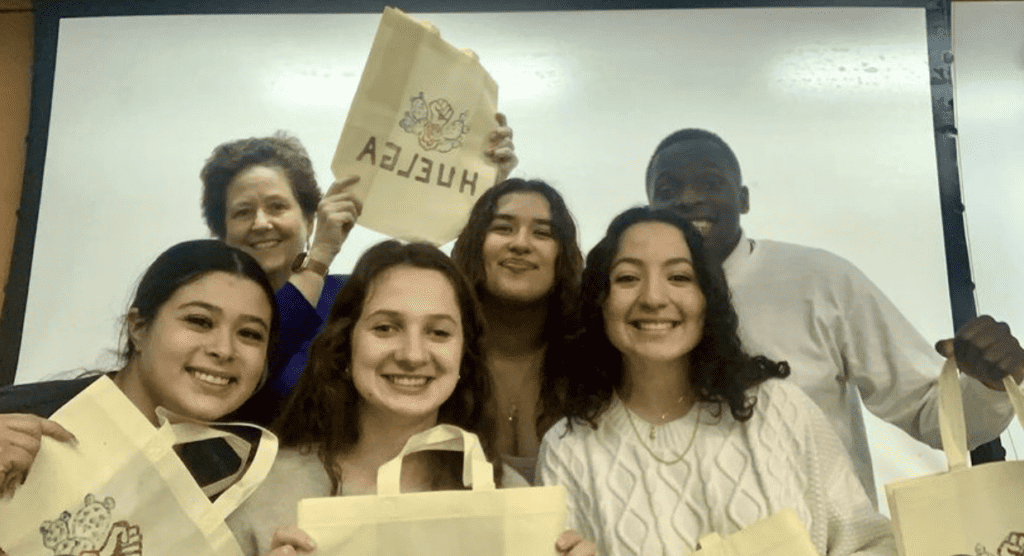At one of our most recent workshops, we had a farmworker advocacy panel that consisted of a legal professional, a non-profit organizer, an education advocate, and a farmworker. The most impactful story from the panel came from Doña Leti, who is a grassroots activist and farmworker who has dedicated the past years to empowering and advocating for her community.
Her voice was strong and clear as she began to tell us the story of a group of farmworkers who were being forced to adhere to a poor meal plan by their grower. It was a stressful and frightening journey as any form of resistance threatened the worker’s working status; if they did not agree to pay for the meal plan, they would not be invited to work at the field again. At every stage of organizing, the number of people who signed on to protest decreased. However, one particular worker kept coming back even with fear of not having work. He was scared of losing his livelihood, which was a matter of great importance to support himself and his family, but his wife advised him to “ comerse un huevo, y ponerse los otros dos.” Eventually, he signed with a few others who were willing to take the risk.
Unfortunately, he was not invited to work at the same field next year, but he did not regret his actions because he felt that he restored his dignity. As Doña Leti told this story, I could see her pride beaming on her face at the courage of these farmworkers. Their story was not a complete success in the broader picture, but it deeply impacted the lives of people who are integral and essential to the movement. It reminded me that every effort in the fight for farmworker justice is worthy.
With this lesson in mind, I felt more pride in telling the story of my farmworker family and injustices they face to my class on Human Rights in the Americas. I presented specifically on the experiences of female farmworkers in food production and in fieldwork. I gave them bags that I had designed as part of my work for SAF, and they told me they were moved and would support our fundraiser. This small win for my local community was important because it represented the community efforts that Doña Leti spoke about.

Written and submitted by: Nancy García Villa, SOL intern 2023-2024
